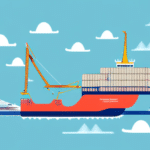Understanding Freight on Board (FOB) in International Trade
Freight on Board, commonly known as FOB, is a pivotal term in international trade that defines the contractual agreement between the buyer and seller regarding the transfer of ownership and responsibility for goods during transportation. Grasping the nuances of FOB is essential for both parties as it delineates when the buyer becomes liable for the shipment and outlines the associated transportation charges.
The Fundamentals of Freight on Board (FOB)
FOB determines the point at which ownership and risk transfer from the seller to the buyer. This distinction is crucial as it affects who bears the cost and responsibility for the goods at various stages of the shipping process.
FOB Shipping Point vs. FOB Destination
- FOB Shipping Point: The buyer assumes responsibility once the goods leave the seller's premises.
- FOB Destination: The seller retains responsibility until the goods reach the buyer's location.
Understanding these terms helps in managing risks and costs effectively. It's important to note that FOB is applicable primarily to goods transported by water or rail. For road or air transport, terms like "Freight on Road" (FOR) or "Freight on Air" (FOA) are used instead.
Historical Context and Evolution of FOB
The concept of FOB dates back to the 16th century when merchants relied on boats for international trade. Different regions had varying definitions of when ownership transferred, leading to the need for standardized terms like FOB.
Evolution in Different Industries
While FOB originated in the shipping industry, its application has expanded across various sectors. In manufacturing, for instance, FOB can determine when a buyer takes ownership of raw materials or components.
With the rise of e-commerce and global trade, the application of FOB continues to evolve, adapting to new logistics and business practices.
The Importance of FOB in International Trade
FOB clauses provide clarity and reduce ambiguities in trade agreements by specifying the responsibilities and liabilities of buyers and sellers.
Benefits of Using FOB
- Clarity in Responsibilities: Clearly defines who is responsible for goods at each stage.
- Risk Management: Helps in mitigating risks associated with loss or damage during transit.
- Cost Efficiency: Enables better budgeting by outlining who bears transportation costs.
By establishing clear terms, FOB helps prevent disputes and ensures smoother transactions between international trade partners.
Types of FOB Terms Explained
FOB comes in various forms, each defining different points of transfer for ownership and responsibility.
Common FOB Variations
- FOB Origin: Buyer takes responsibility once goods are shipped.
- FOB Destination: Seller retains responsibility until goods arrive.
- FOB Freight Collect: Buyer pays for transportation upon delivery.
- FOB Freight Prepaid: Seller pays for transportation before shipping.
Understanding these variations is crucial for negotiating favorable terms and avoiding potential misunderstandings.
Calculating FOB Pricing
Determining the FOB price involves considering the cost of goods, transportation fees, and handling charges.
Steps to Calculate FOB Price
- Start with the base cost of the product.
- Add estimated shipping and handling fees.
- Exclude any costs incurred after the goods are loaded onto the transport vessel.
It's essential to clearly define these terms in the contract to ensure both parties understand their financial obligations.
The Role of FOB in Shipping and Logistics
FOB terms play a critical role in determining logistics strategies and shipping arrangements.
Impact on Logistics
- Responsibility Allocation: Defines who manages and pays for shipping logistics.
- Cost Management: Influences decisions on shipping methods and carriers.
Properly managed FOB terms can lead to more efficient logistics operations and cost savings.
Common Misconceptions About FOB
There are several misunderstandings surrounding FOB terms that can lead to confusion in trade agreements.
FOB Does Not Always Mean Free Shipping
FOB specifies the point of ownership transfer, not the cost of shipping. Additional charges may apply depending on the specific FOB term used.
FOB is Applicable Beyond International Trade
While commonly associated with international transactions, FOB terms are also relevant in domestic trade, particularly in industries like manufacturing and agriculture.
Negotiating Favorable FOB Terms
Effective negotiation of FOB terms requires a clear understanding of each party's responsibilities and the specifics of the contract.
Key Factors to Consider
- Delivery Time Frame: Establish clear timelines for shipment and delivery.
- Payment Terms: Define how and when payments will be made.
- Transportation Options: Choose reliable carriers to minimize risks.
- Liability Clauses: Clearly outline responsibilities for loss or damage.
By addressing these factors, both parties can negotiate terms that protect their interests and facilitate a smooth transaction.
Legal Implications of FOB in Business Transactions
FOB terms have significant legal consequences that must be understood to avoid potential disputes.
Transfer of Risk
Once goods are loaded onto the transport vessel under FOB terms, the risk of loss or damage transfers to the buyer. It's crucial for buyers to secure appropriate insurance to mitigate this risk.
Contractual Obligations
Both parties must adhere to the specified FOB terms to uphold their contractual obligations. Breaches can lead to legal repercussions, including claims for damages.
Consulting with legal professionals when drafting or reviewing FOB terms can ensure that contracts are fair and enforceable.
Pros and Cons of Using FOB for Your Business
Adopting FOB terms in your business transactions comes with its set of advantages and challenges.
Advantages
- Cost Savings by delineating responsibility for shipping costs.
- Increased Control Over the Shipping Process.
- Clear Responsibilities Reduce Potential Disputes.
Disadvantages
- Complex Negotiations to establish favorable terms.
- Higher Liability Exposure for Buyers once goods are shipped.
- Potential for Misunderstandings Without Clear Communication.
Businesses must weigh these factors to determine if FOB terms align with their operational and financial goals.
Managing Risks When Using FOB Terms
Effective risk management is essential when engaging in transactions governed by FOB terms.
Strategies for Risk Mitigation
- Select Reliable Logistics Partners: Partner with reputable carriers to ensure safe and timely delivery.
- Conduct Due Diligence: Verify the reliability and compliance of all parties involved in the shipping process.
- Understand Local Regulations: Familiarize yourself with relevant laws and customs to prevent legal issues.
Implementing these strategies can help minimize risks associated with transportation and ownership transfer under FOB terms.
Conclusion
Freight on Board (FOB) is a fundamental term in international trade that defines the transfer of ownership and responsibility for goods during transportation. By understanding the various FOB terms, their implications, and how to negotiate them effectively, both buyers and sellers can navigate international transactions with greater confidence and clarity. Proper management of FOB terms not only mitigates risks but also fosters trust and efficiency in global trade relationships.






















